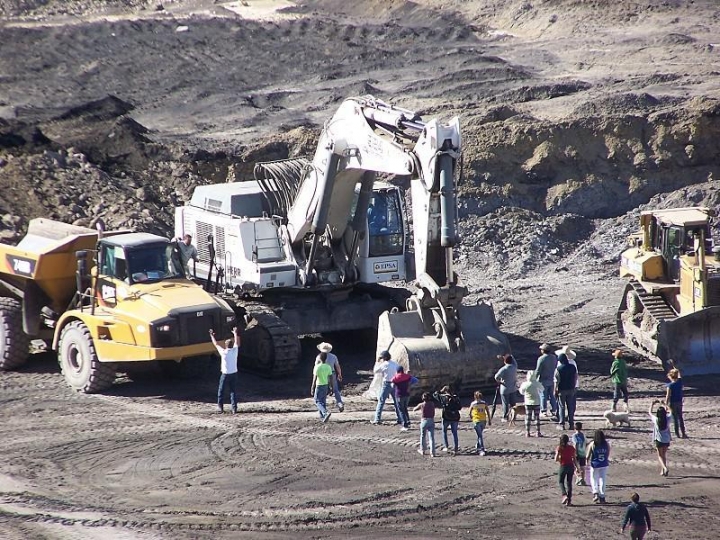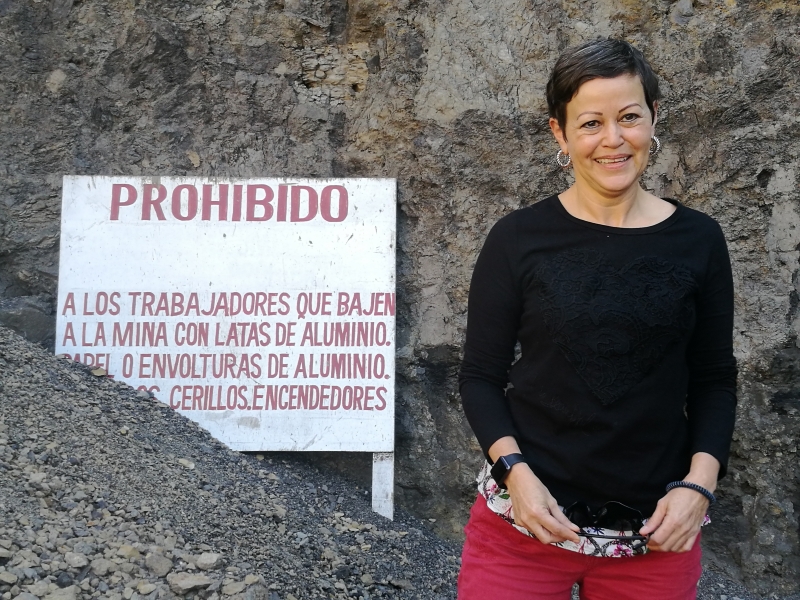In February 2018, the Inter-American Commission on Human Rights (IACHR) admitted the case of the Pasta de Conchos mine, where 65 miners died in 2006. Two of the bodies were retrieved, while the remaining 63 bodies are still trapped inside the mine. As a result of the IACHR’s admission, the almost 1100 close family members of the 63 miners – who makes up the Organización Familia Pasta de Conchos – accepted the possibility of making a friendly agreement with the government – if and only the work of retrieving the remains of the 63 miners is resumed. In other words, the recovery of the remains is not a resolution of the case, but a condition for the government to be able to reach an amicable solution with the OFPC.
The Committee for the Reparation and Justice in Pasta de Conchos was established on May 10th 2019, more than 13 years after the accident. This committee, led by the Ministry of Labor, also includes the Ministry of Economy, the Ministry of the Interior, the Ministry of the Environment and Natural Resources, the Ministry of National Defense, experts in national and foreign coal mines and mining rescue, the Institute of Anthropological Research, as well as relatives and representatives of the families. Obviously, business groups, politicians and trade unionists have undertaken a strong campaign to discredit and disqualify the recovery of the remains in the local media, and has even sent threats to one of the families’ representatives.
In order to make a technical proposal to determine how the recovery of the bodies should be done, the Mexican Geological Service (SGM) carried out a series of technical studies requested by mine experts. But then, the COVID-19 pandemic came. On March 20 2020, the Jornada de Sana Distancia began – a national program based on social distancing to prevent the coronavirus from spreading. On the same day, the SGM finalized the technical studies on the Pasta de Conchos site. From that moment on, OFPC began a process of reinventing itself in order to continue working.
The families of the Pasta de Conchos case, as well as coal miners, have been able to train each other to use individual and groups calls and messages through the use of mobile apps. This did not only solve the need of SGM to continue its technical proposal, but also allowed the women – who make up most of the OFPC – to keep an eye on each other and remain united during this time. Additionally, they were able to continue moving forward the process of constructing a technical proposal to recover the remains of their families.
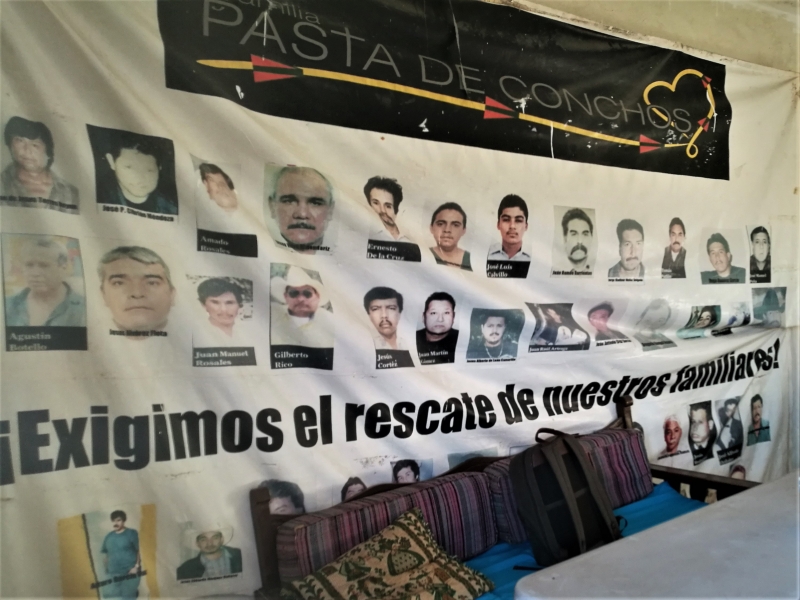
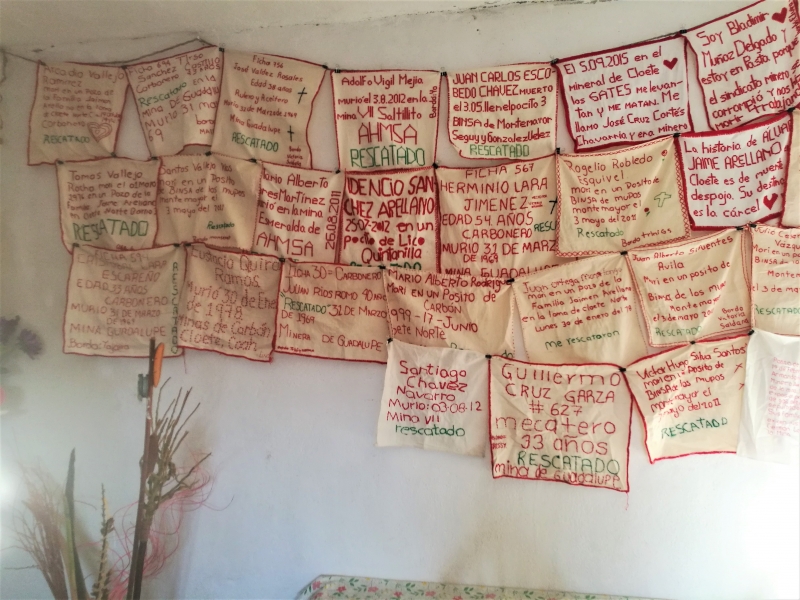
The same has been done by the miners, although most of the coal mines stopped when the state company stopped buying coal from them, those who kept working also used text messages services to report violations of safety regulations. And to our surprise, workers from maquila companies began to contact us to denounce the risks of COVID-19 contagion or outbreaks of contagion in their workplaces.
Given the geographic isolation of the coal region and the historic lack of interest in the health of coal miners and families, the Mexican Social Security Institute (IMSS) has established communication channels to inform the public about the COVID-19 virus, and to make decisions to protect the population. Although members of the OFPC have complied with the isolation measures as far as possible, we have had some cases of infected families and deaths of coal workers. And with the Ministry of Labor, whom we have been working with to prevent fatal accidents in the mines since 2013, we are now also dealing with complaints about the risk of COVID, not only in the coal region, but in the whole state of Coahuila.
A communication channel was also opened by the Coahuila State Government. However, it did not work as there is little will to resolve it. In the best cases, we managed to contain the violence of the police against the coal miners, but they never open investigations against the aggressors. We only managed to stop the violence against the miners in some cases.
The mines will return to operate in a couple of weeks, the coal purchase contracts have been extended, and we believe that - having reinvented new forms of communication with women - we are better prepared to answer the miners’ requests, who are put at risk.
The NHRF invites different actors within the human rights field to contribute on this blog. The opinions expressed here are those of the authors.
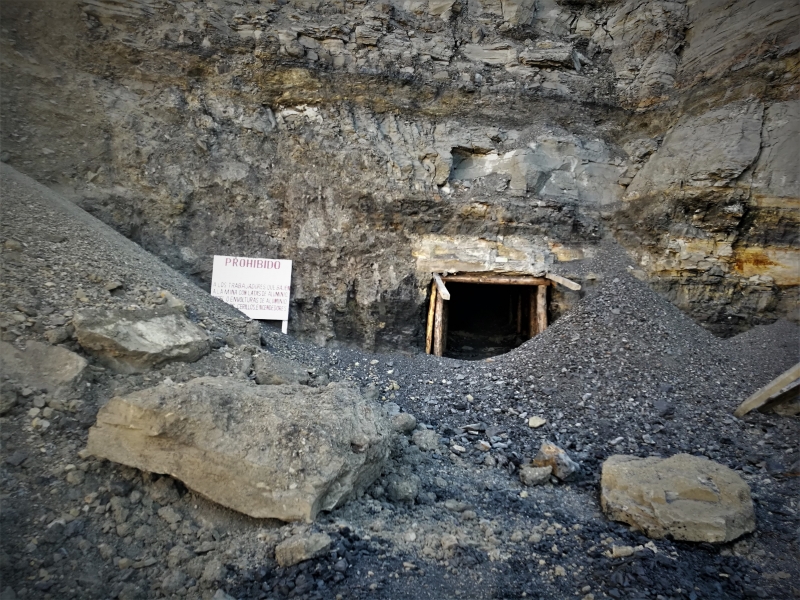
#IDefendRights
Cristina Auerbach has shared her story on the I Defend Rights platform. Listen to her story (only in Spanish) here:

